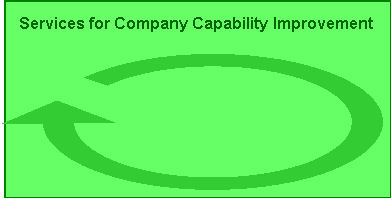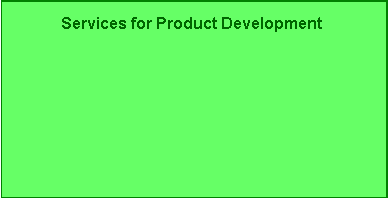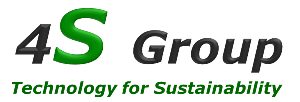Functional Safety is an important issue
At the end of 2011, the ISO 26262 standard - which is an adaptation of IEC 61508 - was published as IS (International Standard) and therefore establishes a reference for the Functional Safety of electric/electronic (E/E) systems of road vehicles, covering the whole product lifecycle (for more information see this topic in the Thematic Area).
The standard is based on state-of-the-art methodologies and, in fact it is already being applied by major car makers and tier-1 component suppliers in order to protect Product Liability.
Therefore, it is necessary that all automotive companies involved in safety relevant E/E systems rapidly apply the Functional Safety methodologies and, to this end, increase their knowledge on this matter, acquire suitable test equipment and adapt their company organization.
Who is the customer
Any company in the transport sector that either develops, produces or integrates on-board E/E safety relevant systems.
Services for Company Capability Improvement
The services provided by 4S can improve the company capability to assure the Functional Safety according both to the future ISO 26262 Standard specific for automotive applications and to the more general existing IEC 61508 Standard.

Maturity Level Appraisal
The future ISO 26262 requires a high level of "safety culture" and an independent Functional Safety Maturity Level Appraisal is very useful for:
- car makers and system suppliers, as fundamental input information to check and improve their capability to have in place the right and effective processes and methods needed to manage all the Functional Safety requirements and to reduce the risks related to Product Liability
- system suppliers to demonstrate their capability to satisfy the Functional Safety and customer requirements.
Company Process Development
The future ISO 26262 requires the definition of guidelines, reference processes, new tools and methods related to Functional Safety to cover the lifecycle of E/E onboard systems.
The main methods and tools are:
- for design processes: Hazard Analysis, Risk Assessment, Criticality Analysis (System FMEA, FMECA, FMEDA, FTA), Verification and Validation tests based on "Fault Injection"
- for production: Control Plan
- for operation and service: field data collection.
Company Process Audit
The future ISO 26262 requires Audit of the Safety Processes by an independent organization during the safety lifecycle, in case of "high risk" (ASIL D).
Personnel Training and Qualification
The future ISO 26262 requires that Functional Safety is managed by qualified personnel for specific roles: Safety Manager, Safety Specialist, Safety Assessor.
Services for Development of Products
4S provides support to develop on board systems complying with the Functional Safety requirements according both to the future ISO 26262 Standard specific for automotive applications and to the more general existing IEC 61508 Standard.

Application Support
What is the application support for Functional Safety
The development of Functional Safety is a process aimed to limit the risk related to the system within an acceptable value. Several design and verification phases are required:
- Functional Safety Concept (e.g. System Analysis, Safety Plan, Hazard Analysis, ASIL determination, Safety Goals determination, etc.)
- Technical Safety Concept (e.g. System Architecture definition, ASIL decomposition, definition of recovery strategies, hardware and software Safety Requirements, etc.)
- System Integration and Verification (System Integration of subsystems and components adapted to meet specifications, verification of Hw and Sw elements by testing at different integration levels)
- Safety Validation (i.e. testing at vehicle level to prove that the system meets the Safety Requirements)
What system information are necessary to perform the development
A complete documentation of the system is necessary:, e.g.: electrical diagrams, component characteristics, description of the system and subsystem functions, simulation models, FMECA, etc.
What tools are necessary
It is necessary to employ methodologies to support reliability analyses (e.g. FTA) and simulation systems. Furthermore, it is essential to use suitable test tools to experimentally validate the system. 4S offers such test tools.
Performance (Functional Safety) Assessment
Functional Safety Assessment is one of the confirmation measures required by the future ISO 26262, together with Safety Audits regarding the processes and Safety Reviews, which address specific safety activities.
Functional Safety Assessment is a complete evaluation of the processes and the activities performed for ensuring the Functional Safety of the product under development before SOP (Start of Production). It has to be conducted by an independent organization in the case of a high risk system (ASIL D).
4S provides all confirmation measures.
Project Management
4S can assist you to define and manage a complete project to cover all the activities required during the Functional Safety lifecycle for a specific product. Before performing such a project, 4S recommends a preliminary Maturity Level Appraisal to identify the organizational and technical readiness of your Company.
Testing Management
The future ISO 26262 requires verification and validation activities according to the "V" development model. Fault injection technique is a common practice employed in experimental testing and recommended by the Standard.
4S helps your Company to define effective and optimized test plans required for Functional Safety and other functions/characteristics of your products. Moreover, 4S provides test equipment and software tools particularly designed to support Functional Safety testing and customized for specific applications.
Products
4S offers test equipment specifically designed to meet the validation requirements of the Standards. It has to be taken into account that for each system under development specific test equipment is needed; however this equipment is easily derived from the basic unit.




